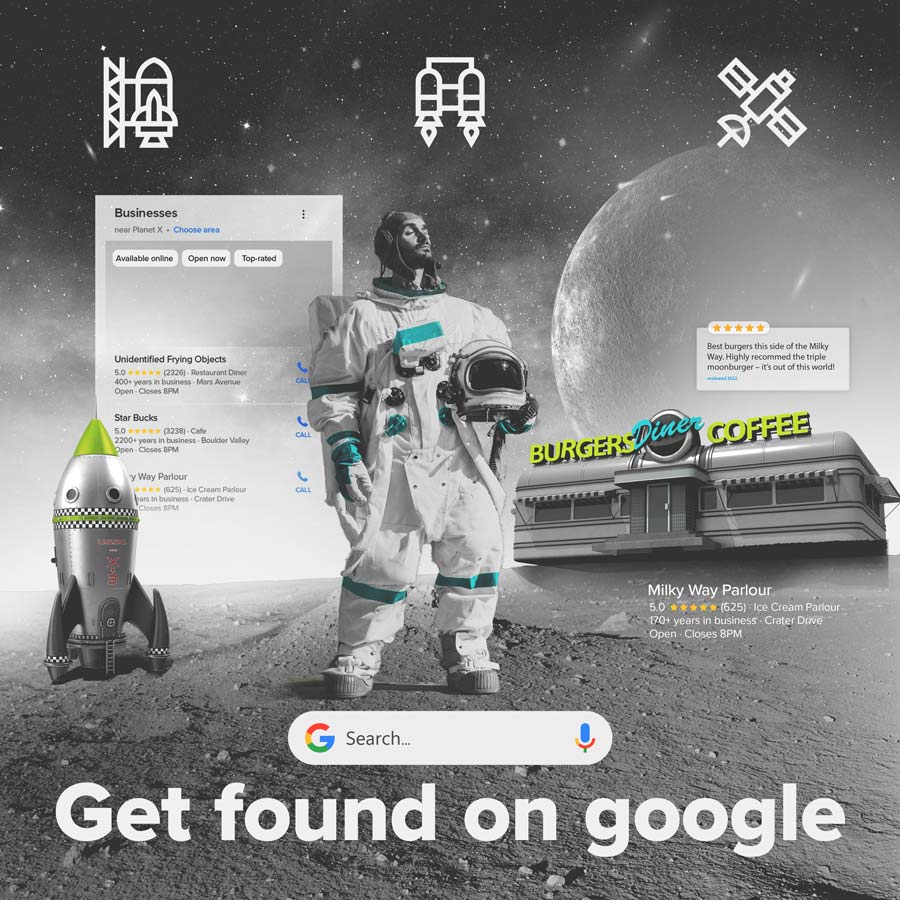
Improve SEO and get found on Google!
Question: Where’s the best place to hide a dead body? Answer: The second page of Google. Bad joke but even more frightful to know that the first page of Google receives most of the organic traffic clicks (A figure that has been reported as high as 92%). Of course, you can pay to appear at the top (advertising) but there is an ad-resistant generation who scroll right past those. (In a survey, 84% of the millennial respondents said they don’t like or trust advertising).
For a longer-term solution, the holy grail would be to always appear at the top of the results, in a trusted, credible organic way and to be the website that hoovers up the biggest share of all the traffic, engagement, and conversions. To do this requires a degree of committed effort, strategy, and some skills. In short, you need damn good Search Engine Optimisation (SEO)!
SEO refers to techniques that help your website rank higher in organic (non-paid for) search results. This makes your website more visible to people who are looking for your products or services through search engines like Google.
NOTE: SEO falls under the wider umbrella of Search Engine Marketing (SEM). A term that describes all the different marketing tools that can be implemented to help people search for your site and may include both organic and paid listings.
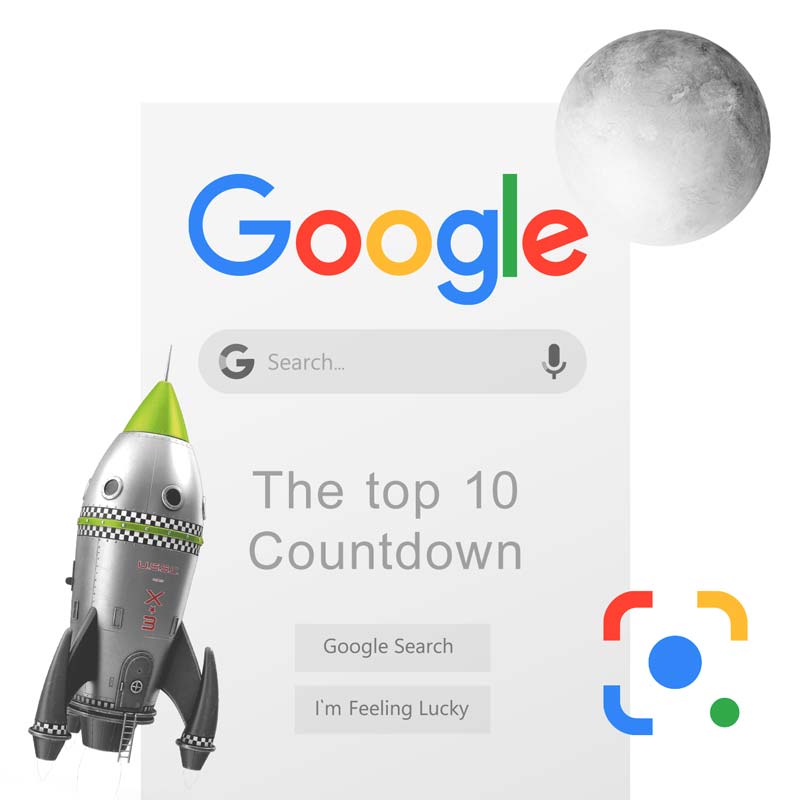
SEO Increases Organic Discovery
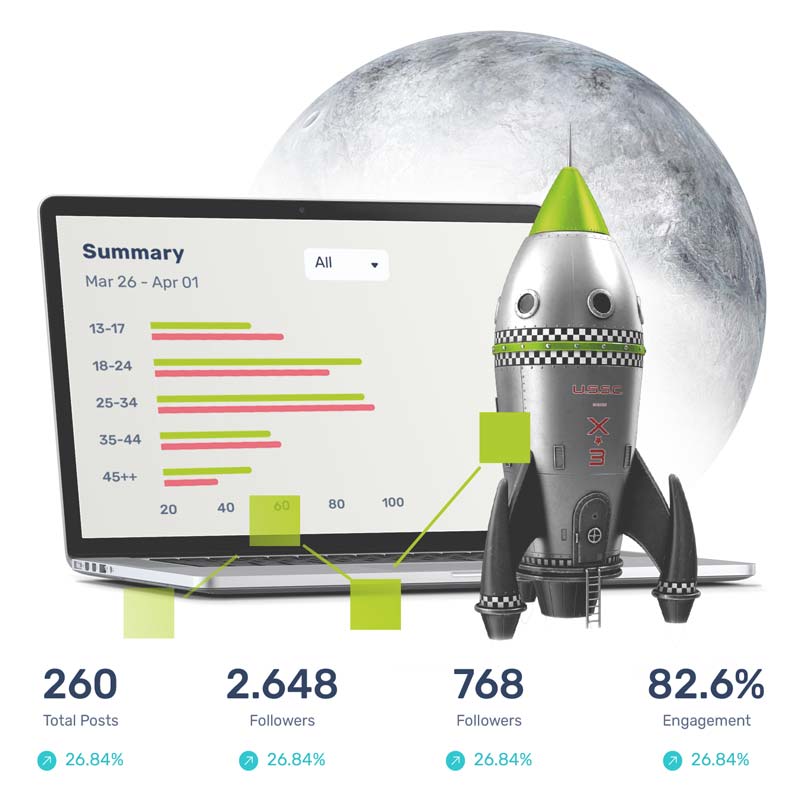
SEO Offers Impressive ROI

SEO Improves Credibility & Trust
Some basics of SEO
Why is it important for your website to be listed on search engines?
Where is the first place you go to search for something online? We’ll take a gamble that it’s Google! On Google alone, there are approximately 5.6 billion searches a day with users being served personalised results to encourage them to favour the search engine.
These are huge numbers, so every day that your website is not indexed you are missing out on thousands of opportunities to be seen by your ideal client. Having strong organic SEO will dramatically increase your website’s ranking in the search engines and allow your site to be found by your customers.
To be even blunter and the truth is hard, but if you’re not appearing in Google’s top 10 results for your target keywords, your website might as well be invisible on Google.
How do search engines work?
Each search engine has something called crawlers and these are constantly scanning the web and indexing websites based on their content and links. If your site is not correctly indexed, then the search engines will not be able to find it and serve it to your potential customers on the search engine results page (SERP).
Factors that search engines consider when determining how to prioritise your web page on the SERP include:
1. Content
Content is king! Search engines will crawl your site picking up clues for the topics your business talks about and what codes you have used in the back end of your site (such as descriptions, instructions, and tags),
2. Links
The crawlers will also look to see which websites are linking back to yours. The more you have (and that are credible) the higher you will rank.
3. Keywords
Keywords are important to helping people find your website but it’s vital to remember not to write your content for search engines. This is where you really need to know your audience and when you write with them in mind everything else will naturally follow.
How long does it take to show SEO results?
Of course, this question is valid if you are investing in SEO you want to know how it will help your business grow.
As with most forms of marketing, SEO success takes time, and you need to be sure what your SEO goals and KPIs are so you can then measure if these were successful. Examples might be:
Goal: to achieve 50% of increased revenue in the next 12 months
KPIs: Increased organic traffic to your site, impressions, and higher ranking
SEO takes around 6-12 months to start seeing results such as increased traffic and leads but this of course differs depending on the strategy you have in place, your type of business, and the type of website. It’s important, therefore, to understand that it will take time to improve your SEO.
Some basics of SEO
Why is it important for your website to be listed on search engines?
Where is the first place you go to search for something online? We’ll take a gamble that it’s Google! On Google alone there are approximately 5.6 billion searches a day with users being served personalised results to encourage them to favour the search engine.
These are huge numbers, so every day that your website is not indexed you are missing out on thousands of opportunities to be seen by your ideal client. Having strong organic SEO will dramatically increase your website’s ranking in the search engines and allow your site to be found by your customers.
But to be even more blunt and the truth is hard, but if you’re not appearing in Google’s top 10 results for your target keywords, your website might as well be invisible on Google.
How do search engines work?
Each search engine has something called crawlers and these are constantly scanning the web and indexing websites based on their content and links. If your site is not correctly indexed, then the search engines will not be able to find it and serve it to your potential customers on the search engine results page (SERP).
Factors that search engines consider when determining how to prioritise your web page on the SERP include:
1. Content
Content is king! Search engines will crawl your site picking up clues for the topics your business talks about and what codes you have used in the back end of your site (such as descriptions, instructions and tags),
2. Links
The crawlers will also look to see which websites are lining back to yours. The more you have (and that are credible) the higher you will rank.
3. Keywords
Keywords are important to helping people find your website but it’s vital to remember not to write your content for the search engines. This is where you really need to know your audience and when you write with them in mind everything else will naturally follow.
How long does it take to show SEO results?
Of course, this question is valid if you are investing in SEO you want to know how it will help your business grow.
As with most forms of marketing, SEO success takes time, and you need to be sure what your SEO goals and KPIs so you can then measure if these were successful. Examples might be:
Goal: to achieve 50% of increased revenue in the next 12 months
KPIs: Increased organic traffic to your site, impressions, and higher ranking
SEO takes around 6-12 months to start seeing results such as increased traffic and leads but this of course differs depending on the strategy you have in place, your type of business and type of website. It’s important therefore, to understand that that it will take time to improve your SEO.
Looking for an SEO plan to suit your budget and business goals?
You’ll surely agree that SEO is a broad and complex undertaking, but an investment so worthy, that it’s a no-brainer not to do it if you have the budget. To be as upfront as we can at Brandspace, we’ve put together some packages to give you an idea of the budget you’ll need, with a bulleted breakdown of the work we undertake to achieve SEO success. Whilst the packages provide a ballpark, we can tailor the areas we focus on when knowing what SEO challenges and opportunities are unique to your company. Call us to discuss your goals and you’ll have a welcoming opportunity to discover what it will be like to work with us and what we can achieve together.
Some of the different types of SEO
Local SEO
Turn people who find you on Google Search and Maps into new customers
Local SEO is a variation of SEO that focuses on a specific area, rather than a national focus. It’s all about increasing your online presence in your community and promoting your products or services to local customers. Often, how well you rank on Google depends on your Google My Business profile. This is where you include your address, business hours, description, reviews, and photos. There is a fantastic opportunity to rank locally since only 44% of businesses claim their GMB listing.
Consider these mindblowing stats:
- 76% of people who search for a local business on their mobile phone visit a related business 24 hours. Read more like this!
- 28% of local searches result in a purchase within 24 hours. Read more like this!
- 86% of people look up the location of a business on Google Maps
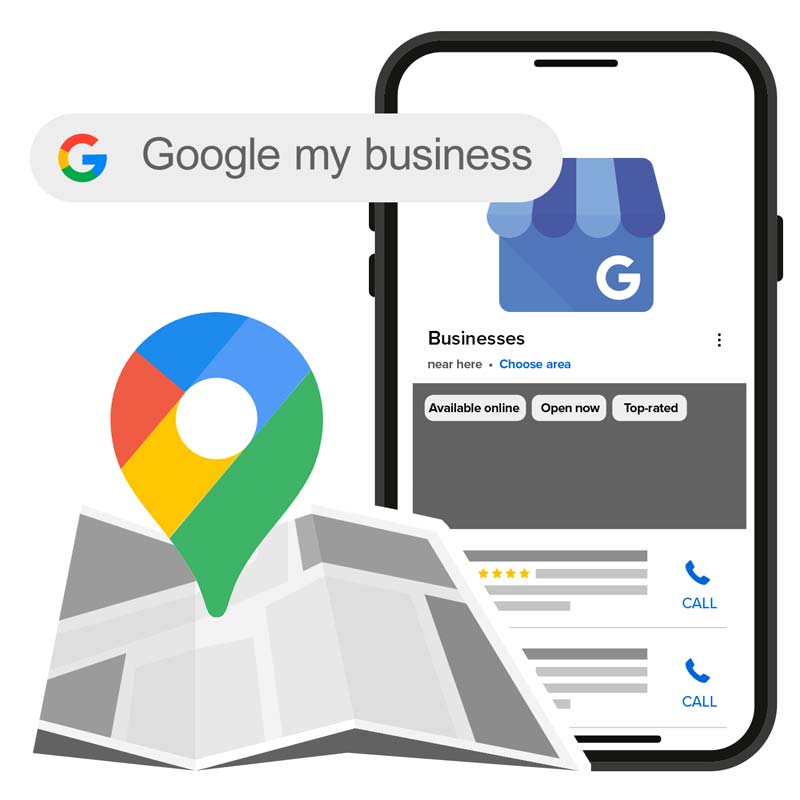

On-Page/On-site SEO
On-page SEO is simply anything you can do to the website pages to improve their rankings. You do this by making sure you optimise your content in a way that it can be clearly understood by Google and search engines. There are several key components of onsite SEO that are the foundation for improving the page rank and these will include things like; your copy, headlines, keywords, meta titles and descriptions, tags, images, etc.
Off-Page/Off-site SEO
Offsite SEO is the strategy of having other sites link back to yours, indicating that you are an authority in your industry. Off-page SEO is all about creating exposure and trust for your company, which is something the Google Search Algorithm places a huge emphasis on. Read more about that here.
Some of the ways to do this would include making shareable content, social media, review marketing, guest blogging, link building (which is key), and more.
Technical SEO
SEO is performed to help search engines crawl your website and enhance user experience (UX). As search engines and their algorithms become more complex, these requirements change which means that this type of SEO is always evolving.
In order to make sure there are not any problems with crawl ability and UX, your technical SEO efforts must be efficient with consideration given to website speed, mobile friendliness and site structure.
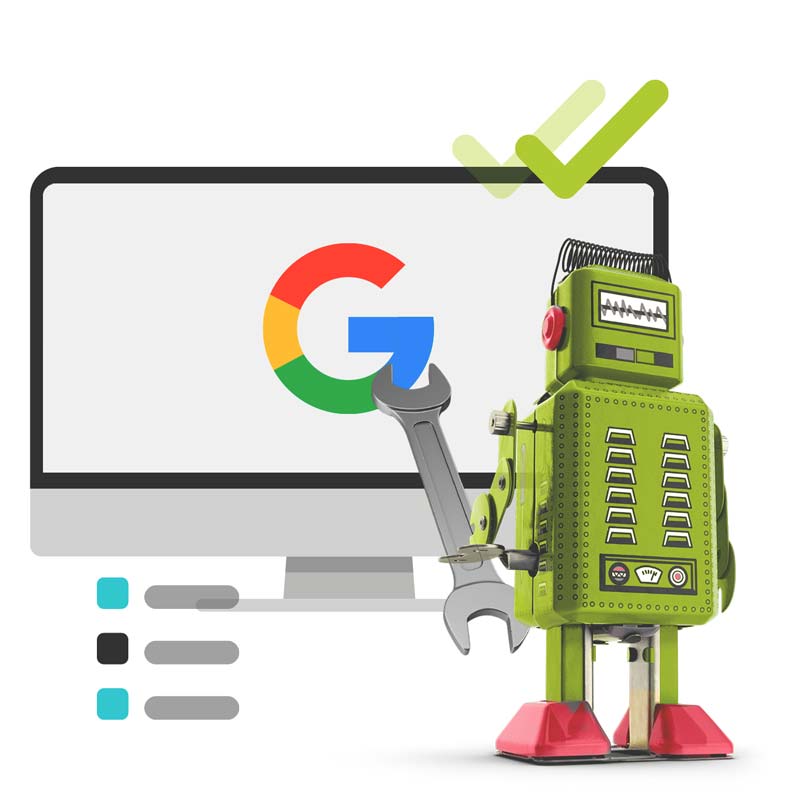
SEO as part of a broader digital marketing campaign
Search Engine Optimisation falls under the umbrella of a digital marketing strategy which could employ a wide range of methods and technologies to reach your targets online. An effective digital marketing campaign might include:
- Search Engine Optimisation (SEO)
- Pay-Per-Click Advertising (PPC)
- Social Media Marketing
- Content Marketing
- Email Marketing
- Mobile Marketing
Brandspace has the very best at hand – experts who excel in all these areas.
Let’s meet up
It starts with an introductory meeting – You can just ask for some one-off advice, or you can engage our services on an hourly rate, project fee or retainer basis – we are totally flexible to your needs. Get in touch by phone or email, or complete the enquiry form.
